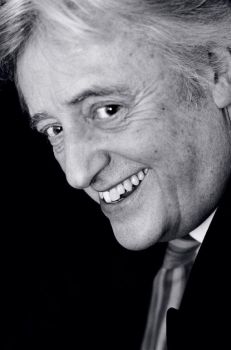Broadcast: News items
Lawyer lifts lid on Britain’s biggest cases
By: James Hakner
Last updated: Tuesday, 23 March 2010

Michael Mansfield QC. Photo courtesy of Sarah Booker
A 'radical' lawyer who has worked on some of the most high-profile legal cases in modern British history will speak on campus next month as part of the summer term series of Sussex Lectures.
Michael Mansfield QC has represented, among others, Stephen Lawrence's family; Michael Barrymore at the Stuart Lubbock inquest; Barry George at the inquest into the death of Jill Dando; the 'Bloody Sunday' families; Arthur Scargill; Mohamed al-Fayed in the inquest into the deaths of his son Dodi al-Fayed and Diana, Princess of Wales; and the family of Jean Charles de Menezes.
His Sussex Lecture on 29 April, 'Memoirs of a radical lawyer', is also part of the lecture series on Issues in Criminal Justice, which saw Attorney General Baroness Scotland speaking on campus in February.
This summer's Sussex Lectures kick off on 20 April with another lecture on Issues in Criminal Justice. 'Has criminal law and bureaucracy all gone too far?' is the question to be addressed by Jeremy Horder of the Law Commission.
The series continues on 21 April with a visit from Professor Chris Frith (Wellcome Trust Centre for Neuroimaging), who will consider the role of consciousness.
Experimental psychologist Professor Jennifer Rusted will be giving the first of five Professorial Lectures in the series on 27 April, explaining the complex brain process behind seemingly simple tasks such as making a cup of tea.
The Marcus Cunliffe Centre for the Study of the American South Lecture, on 10 May, will be given by Dr Jarod Roll on religion and black politics in the American South prior to the modern civil rights movement.
The summer term series concludes with the four remaining Professorial Lectures.
On 11 May, Professor Erik Millstone will ask whether science and politics can help to keep each other honest; and on 18 May Sally Munt, Professor of Cultural Studies, will look at the histories, technologies, practices, literature, politics and ecology of scuba diving.
'Imagining the university of the future' will be the topic of Professor Louise Morley's lecture on 25 May.
The final lecture of the series is to be given on 1 June by neuroscientist Professor George Kemenes, who will explain how the snail helps us to understand how we learn and remember.
The Sussex Lectures are given by prominent visiting speakers and leading Sussex academics, and aim to illustrate the breadth and quality of research being conducted on campus.
The lectures are free and open to all, but booking is essential. For more information go to the Sussex Lectures web pages
To book, go to www.sussex.ac.uk/bookalecture
The lectures on Issues in Criminal Justice have been made possible as a result of a generous bequest from the estate of Richard Headridge QC.

